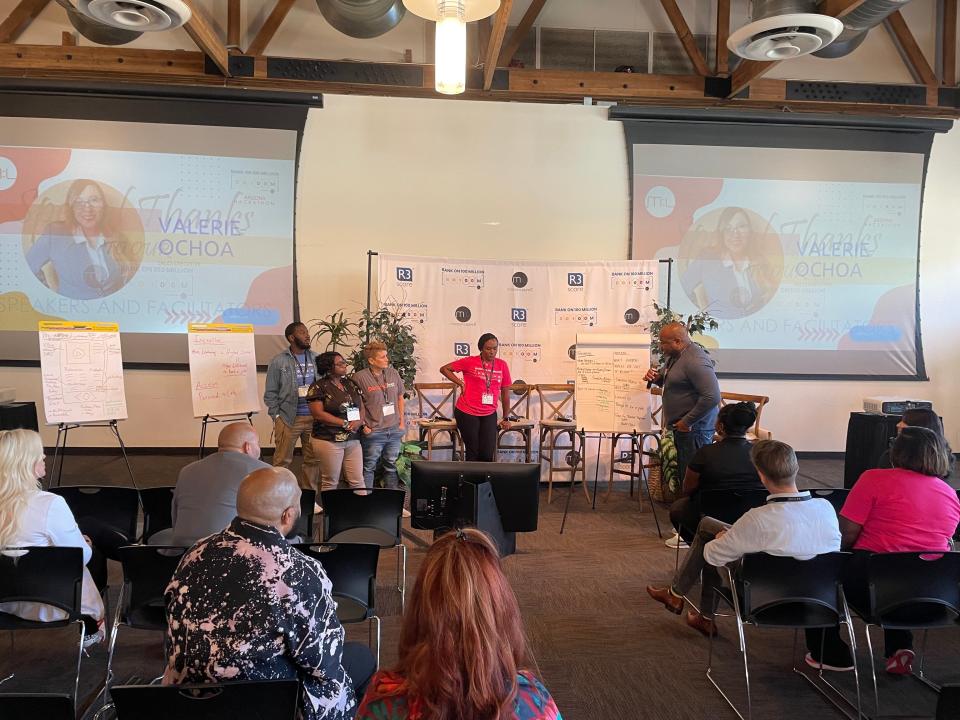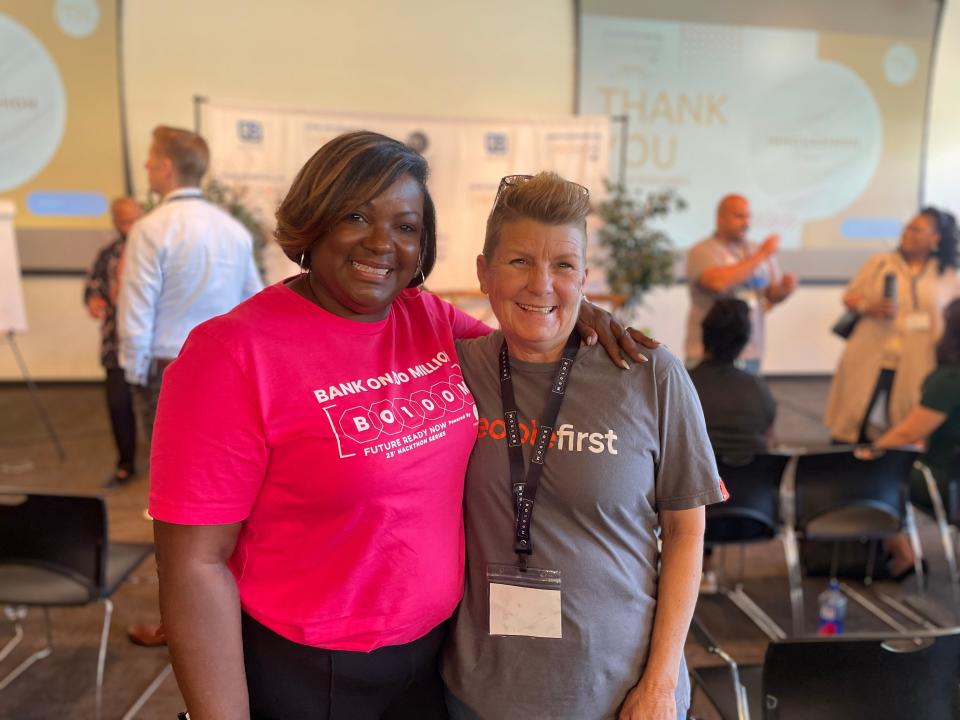How some groups are helping formerly incarcerated women in Arizona land jobs, dignity
Phoenix hosted two significant criminal justice reform events in recent days, featuring leading experts and officials seeking to make the transition from prison to normal life easier and more successful.
One event launched the Arouet Foundation’s Fair Chance Hiring Guidebook for companies looking to hire people formerly imprisoned, while the Mission: Launch event, founded by Teresa Hodge, focuses on reducing the technology gap for individuals leaving prison.
Both groups are organizations looking to make the transition from prison to civilian life easier and reduce the number of people returning to prison.
Among those attending was the new director of the Arizona Department of Corrections Rehabilitation and Reentry, Ryan Thornell, who lauded both programs.
"There's a lot of challenges that people face and making those connections to partners, connecting with resources, that's what it's gonna take," he said.
A guidebook to reentry
Alison Rapping, the CEO of the Arouet Foundation, emphasized the significant financial burden placed on the prison system to a crowd of experts and corporate representatives.
She explained that the prison system costs Arizona $1.5 billion a year, but that number does not account for the myriad of other costs, such as the strain on the foster care system and healthcare access.
Rapping emphasized that solving these problems requires everyone to work together or we all face the financial and public safety burdens to come.
She introduced the Fair Chance Employment Guidebook, a guide that offers employers crucial information to create hiring models that give individuals with previous incarceration histories an unbiased opportunity to land a job.
In addition to the guidebook, Arouet launched an Employer Network in 2020, which hosts quarterly training, seminars, panel discussions, and entry simulations.
The foundation also works within the prisons to mentor women as they reach the end of their terms by holding classes and training on how to put their best foot forward when entering the workforce.
Samantha Garcia-Pennell went through the mentorship program while serving time in Arizona and had help after she was released. She explained that she had been imprisoned in 2012 for drug possession and released in 2020.
After years of struggling with the justice system since she was a teenager, Garcia-Pennell got a mentor who helped her address both immediate issues and the long-term emotional conflicts that she had been struggling with her whole life.
The program includes immediate mentors for those recently released from prison, followed by more in-depth mentors who work with individuals for up to six months out.
"There's the transition coach that focuses on what is a priority, what is a want to, what is a have to," Garcia-Pennell explained, " and then there is the 'what now mentors' who come out and walk hand in hand with the person who is reentering."
A new facet of the program involves corporate volunteers who assist women in determining their career goals and aspirations.
“The program doesn't have all the answers, Garcia-Pennell said. "But it can help you come up with your answer. Help you define it."
About 285 women graduated out of the program last year at Perryville prison, with only 3% of any of them returning to prison.
In 2018, the Department of Justice concluded that about 68% of people released from prison return within the following three years.
Rapping said they were able to launch a new program in March called “Bend, Don’t Break,” to help women early into their prison terms start working towards reentry.
”Reentry should start as soon as you get in,” she said.
That sentiment was echoed by Hodge at the Mission: Launch Hackathon event in downtown Phoenix on Thursday.

Bridging technology and community
“For us, what we found was reentry was inefficient, which really meant that it was taking people a long time to come home and connect to the resources they needed so that they would not go back to prison,” Hodge said.
Hodge, who had personal experience as a formerly incarcerated person after serving 70 months in federal prison for mail fraud, explained that their goal at this year’s event was twofold: to create software for the tablets that will guide and prepare people for when they are released from prison and to encourage community development financial institutions to lend to people with records.
Hodge explained that many individuals with criminal records have limited job opportunities because of societal stigmas many employers refuse to hire people with prison backgrounds. So people leaving prison choose entrepreneurship as a way to support themselves.
Kim Thomas explained that guidance software like the one discussed at the hackathon would have saved her months of struggles and letdowns in finding housing after she was released two years ago from prison.
What led to her time in prison was not discussed.
“There was a lot of hunting and pecking and getting all over the city. I wound up living with a friend. Then I managed to enter sober living just to have a place and then I was finally able to find a place in a decent neighborhood with the help of the Arouet foundation.”

“You think about Kim’s story, not everybody is going to have access to an Arouet and have someone who can walk them into a place to live,” Hodge explained, “And housing insecurity is a matter of public safety. You know, we can't say we want safer communities, and not have opportunities for people to have housing that they can afford.”
Thomas explained that the hackathon provided a space for people across the criminal justice spectrum to meet and try to work out the problems on equal footing.
“I could sit next to a CEO, I could sit next to the director of the Department of Corrections and have a conversation, where I'm a person, he's a person, she's a person, and we aren’t numbers. And we aren't labels. We're all people looking to make the world a better place through dialogue,” she said.
Thornell, who was present at both events, emphasized the importance of partnering with external organizations and outlined several ways the department is moving to foster more relationships like these.
“The unique ability that I have, as the director is to really support those partnerships, and encourage people to reach into the prison system to help,” he said.
His vision for the department includes changing the organizational culture within corrections.
“We need to shift away from the traditional sort of power and control mentality of corrections, that make it much more about engagement, much more about rapport building service connection,” he said.
“When you have 34,000 people incarcerated in your state, and you're only impacting, you know, 3% of those people, that’s not good,” he said.
He plans to find more partnerships to help tackle the cultural changes and reentry guidance and help take on some of the workload and cost.
“We can't do it all ourselves,” he said.
This article originally appeared on Arizona Republic: Arizona prison director leads in partnerships with non-profit

